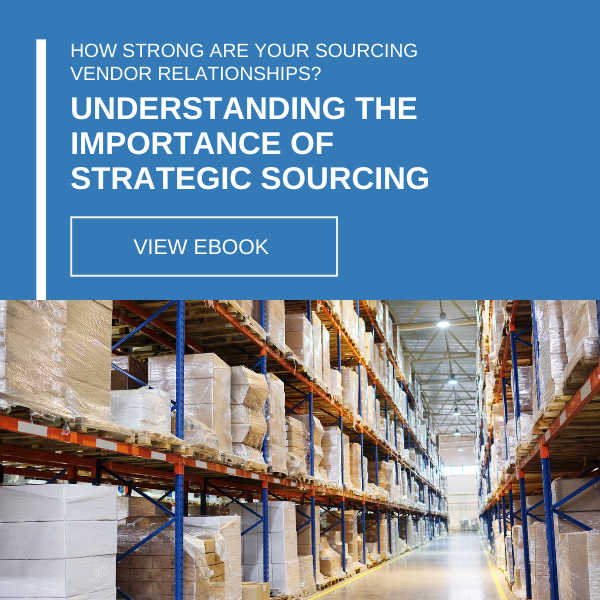-
Subscribe to Blog:
SEARCH THE BLOG
CATEGORIES
- Aerospace
- Asset Maintenance
- Automotive
- Blog
- Building Products
- Case Studies
- Chemical Processing
- Consulting
- Food & Beverage
- Forestry Products
- Hospitals & Healthcare
- Knowledge Transfer
- Lean Manufacturing
- Life Sciences
- Logistics
- Manufacturing
- Material Utilization
- Metals
- Mining
- News
- Office Politics
- Oil & Gas
- Plastics
- Private Equity
- Process Improvement
- Project Management
- Spend Management
- Supply Chain
- Uncategorized
- Utilities
- Whitepapers
BLOG ARCHIVES
- September 2025 (1)
- August 2025 (2)
- July 2025 (2)
- June 2025 (4)
- May 2025 (1)
- April 2025 (1)
- March 2025 (1)
- February 2025 (4)
- January 2025 (4)
- December 2024 (4)
- November 2024 (2)
- October 2024 (6)
- September 2024 (5)
- August 2024 (5)
- July 2024 (6)
- June 2024 (3)
- May 2024 (3)
- April 2024 (4)
- March 2024 (3)
- February 2024 (4)
- January 2024 (5)
- December 2023 (2)
- November 2023 (1)
- October 2023 (6)
- September 2023 (3)
- August 2023 (4)
- July 2023 (2)
- June 2023 (3)
- May 2023 (7)
- April 2023 (3)
- March 2023 (3)
- February 2023 (5)
- January 2023 (6)
- December 2022 (2)
- November 2022 (5)
- October 2022 (5)
- September 2022 (5)
- August 2022 (6)
- July 2022 (3)
- June 2022 (4)
- May 2022 (5)
- April 2022 (3)
- March 2022 (5)
- February 2022 (4)
- January 2022 (7)
- December 2021 (3)
- November 2021 (5)
- October 2021 (3)
- September 2021 (2)
- August 2021 (6)
- July 2021 (2)
- June 2021 (10)
- May 2021 (4)
- April 2021 (5)
- March 2021 (5)
- February 2021 (3)
- January 2021 (4)
- December 2020 (3)
- November 2020 (3)
- October 2020 (3)
- September 2020 (3)
- August 2020 (4)
- July 2020 (3)
- June 2020 (5)
- May 2020 (3)
- April 2020 (3)
- March 2020 (4)
- February 2020 (4)
- January 2020 (4)
- December 2019 (3)
- November 2019 (2)
- October 2019 (4)
- September 2019 (2)
- August 2019 (4)
- July 2019 (3)
- June 2019 (4)
- May 2019 (2)
- April 2019 (4)
- March 2019 (4)
- February 2019 (5)
- January 2019 (5)
- December 2018 (2)
- November 2018 (2)
- October 2018 (5)
- September 2018 (4)
- August 2018 (3)
- July 2018 (2)
- June 2018 (4)
- May 2018 (3)
- April 2018 (3)
- March 2018 (2)
- February 2018 (2)
- January 2018 (1)
- December 2017 (1)
- November 2017 (2)
- October 2017 (2)
- September 2017 (1)
- August 2017 (2)
- July 2017 (2)
- June 2017 (1)
- April 2017 (3)
- March 2017 (3)
- February 2017 (2)
- January 2017 (2)
- December 2016 (2)
- November 2016 (4)
- October 2016 (4)
- September 2016 (3)
- August 2016 (6)
- July 2016 (4)
- June 2016 (4)
- May 2016 (1)
- April 2016 (3)
- March 2016 (4)
- February 2016 (2)
- January 2016 (4)
- December 2015 (3)
- November 2015 (3)
- October 2015 (1)
- September 2015 (1)
- August 2015 (4)
- July 2015 (6)
- June 2015 (4)
- May 2015 (7)
- April 2015 (6)
- March 2015 (6)
- February 2015 (4)
- January 2015 (3)
CONNECT WITH US
Tag Archives: Decentralized Distribution
Sustained marketplace success and effective supply chain management go hand-in-hand. Why? Organizations that cultivate and maintain reliable yet malleable logistics channels can source the material needed to produce impactful products with minimal overhead and deliver these items swiftly to anticipative consumers. In fact, 62% of logistics, supply chain, and transportation executives say their companies are undergoing profound supply chain transformation, according to a 2019 report from Forbes Insights. However, the stakeholders managing these ever-growing caches should familiarize themselves with some of the most recent SCM challenges and trends to ensure that the supply chains they are constructing are truly built to last.
Here are three of those developments and potential roadblocks, and how they might affect organizations attempting to establish logistics conduits that catalyze success:
1. Advanced technology
Sophisticated enterprise information technology now propels numerous operational functions, including supply chains. In fact, businesses worldwide spent around $14 billion on SCM solutions in 2018 alone, per Gartner. However, this rudimentary software is quickly becoming a remnant of the past due to the emergence of several new SCM technologies. Gartner recently highlighted some of these innovations, which include artificial intelligence software, robotic process automation, digital supply chain twinning, and blockchain. Furthermore, SoftwareHut breaks down the benefits of SCM software that will help boost your profits due to this technology.
AI is particularly consequential within the SCM context, having the ability to render assistance across various essential supply chain functions, including maintenance and production planning. And despite the experimental aura associated with the technology, AI sees significant use today — one study from Adobe estimated that 15% of all organizations have deployed this highly advanced software. Robotics is also rising in popularity among organizations looking to automate select SCM processes. Today, there are an estimated 4,000 robotic warehouses in existence worldwide, according to analysts from ABI Research, who estimated that number will increase to 50,000 by 2025 due to an influx of more than 4 million RPA units. Digital supply chain twinning, which involves developing online logistics models that match physical counterparts and therefore can be used for forecasting and simulation purposes, is gaining comparable traction among SCM stakeholders. Blockchain is too, as many supply chain leaders consider the technology, which rose out of the cryptocurrency revolution, an ideal solution for ensuring logistics security. This is partially why an estimated 80% of businesses are pursuing blockchain, per PricewaterhouseCoopers.
2. Decentralized distribution
Back in August 2018, Amazon earned a patent for a fantastical ecommerce innovation: the floating drone warehouse. The patent, which drew considerable media attention, detailed specifications for a hovering distribution hub that would work in concert with hundreds of drones to deliver customer orders. Many dismissed the idea out of hand, despite the ecommerce giant’s penchant for technological innovation. And while it may be a long time before the first Amazon distribution blimp takes flight, the overarching operational objective behind it, supply chain efficiency through logistics decentralization, is evolving into industry best practice.
A good number of businesses are breaking down and redistributing their supply chain nodes in an effort to reduce last-mile delivery times, which are essential to customer satisfaction. Same-day shipping and similarly accelerated logistics options are in higher demand than ever before, making rapid SCM operations critical to organizational success, particularly for B2C companies serving online shoppers. With more than 60% of digital patrons expecting their same-day deliveries to arrive before noon, per UPS, SCM stakeholders at these businesses and others have no choice but to follow in Amazon’s footsteps and embrace logistical decentralization in an effort to bring products closer to customers.
3. Widespread deglobalization
Numerous worldwide trade conflicts have materialized in recent years, collectively damaging international business partnerships forged in the decades following the implementation of the North American Free Trade Agreement and other key pieces of globalist economic policy. Now, nations such as the U.S. and the U.K. are pursuing protectionist trade strategies made to prop up struggling domestic industries. These methodologies, while somewhat effective, are hurting companies that depend on logistics channels that span multiple continents and countries, Supply Chain Quarterly reported. Tariff issuance is the driving force behind this SCM disruption, as organizations everywhere are forced to offset the increased cost of raw material or end product exportation, or seek new partnerships. Intel, for instance, recently revealed that it was taking a second look at its supply chain operations in an effort to find more cost-effective sourcing and shipping strategies, per Bloomberg.
Unfortunately, this general trend of deglobalization is not likely to end soon. While the U.S. government has been meeting with officials from China, its biggest and most powerful economic opponent, in an effort to de-escalate trade tensions, both countries look poised to continue their protectionist ways for the foreseeable future, The New York Times reported. Additionally, the U.S. Department of Commerce is close to imposing new tariffs on $4 billion in products produced in the European Union, according to the newspaper. This move could further imperil businesses that maintain ties with EU logistics partners or are looking to move their supply chains there due to the deglobalization unfolding in Asia.
Businesses grappling with these and other SCM trends and challenges could encounter difficulties when pursuing the necessary operational adjustments. In these moments, external expertise can make an immense difference, lending organizational leaders the actionable insight they need to marshal transformation within their supply chains and capture associated bottom-line gains. Here at USC Consulting Group, we help companies across virtually all industries navigate internal and external upheaval, leveraging tried-and-true techniques and tools that simplify change management, facilitate operational improvement, and lay the foundation for sustained growth.







